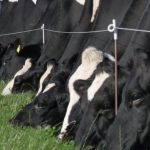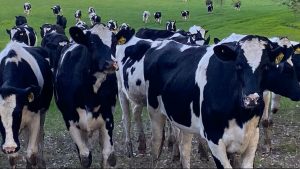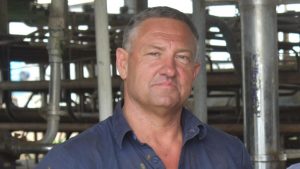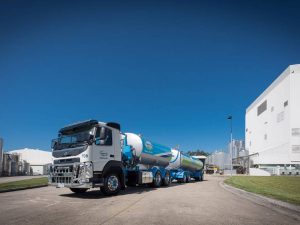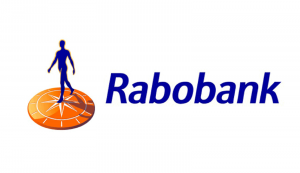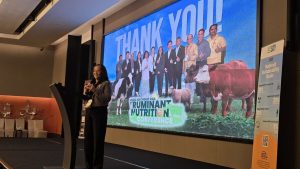
Eden Brew launched through a partnership between dairy co-operative Norco, CSIRO and its deep-tech venture fund Main Sequence, and is headed up by co-founder and chief Jim Fader.
Fader and the team are out to solve at least one element of the “looming problem” we have of feeding an ever-growing population in a sustainable way.
CSIRO has unlocked a way to create one of the key molecules found in milk using ‘precision fermentation’, Fader explains.
“Science can program microorganisms to grow pretty much anything in a very accurate way,” he says.
“We are able to make identical milk proteins that way.”
However, when that molecule is formed inside a cow, it creates a kind of shell that allows it to lock in things like calcium, and allows it to withstand heat.
That is what gives milk many of its properties — it’s what makes your cappuccinos frothy, creamy and smooth, for example. It’s also what Eden Brew is able to replicate.
“We’ve unlocked the secret, we believe, to making milk through fermentation.”
A crowded supermarket
The plant-based meat and alternative proteins scene is getting hotter in Australia. Earlier this month, Harvest B, a startup that develops ingredients for plant-based meat businesses, secured $4.5 million in combined VC and grant funding.
In March, plant-based fat business Nourish raised $14 million. Main Sequence and CSIRO are also behind v2food, an alternative meats business that is seeing hockey-stick growth.
And that’s just scratching the surface.
When talking about alternative proteins, plant-based milks tend to be held up as the yardstick for what’s achievable. It’s the area in which disruption has already happened.
A report from The Good Food Institute suggested milk substitutes account for 40% of the plant-based market, and 14% of the dollar-value of retail milks.
Plant-based meats, on the other hand, account for about 1% of all retail meat, and 2% of retail packaged meat.
But, the report compared the growth of plant-based meat sales to that seen in the early days of the plant-based milk revolution.
Fader says the alternative milk scene is still growing too, as consumer demand continues to lift. And there is still room for innovation.
Eden Brew’s milk will be suitable for those avoiding dairy because of allergens, he explains. And he hopes it will prove an attractive option for those avoiding dairy for ethical reasons, too.
Research suggests more than half of the people who switch to non-dairy milk each year end up going back to dairy, Fader suggests, because the sensory experience isn’t quite right.
“We can absolutely emulate in every way the dairy sensory experience,” he claims.
Say cheese?
Eden Brew is currently finalising its milky research and working on completing the fermentation process at scale.
And, while on the face of it it might seem counterintuitive that a large dairy manufacturer like Norco would get involved in a plant-based rival, Fader believes it makes perfect sense for the corporation to attempt to capture the dairy-free segment of the market.
Ultimately, Feder says this milk will be produced alongside dairy milk at Norco’s facilities.
Eventually we can expect more dairy products to follow, including in the underserved plant-based cheese space.
“We started with milk because it was the hardest, and because we felt it would make the biggest impact,” the founder explains.

